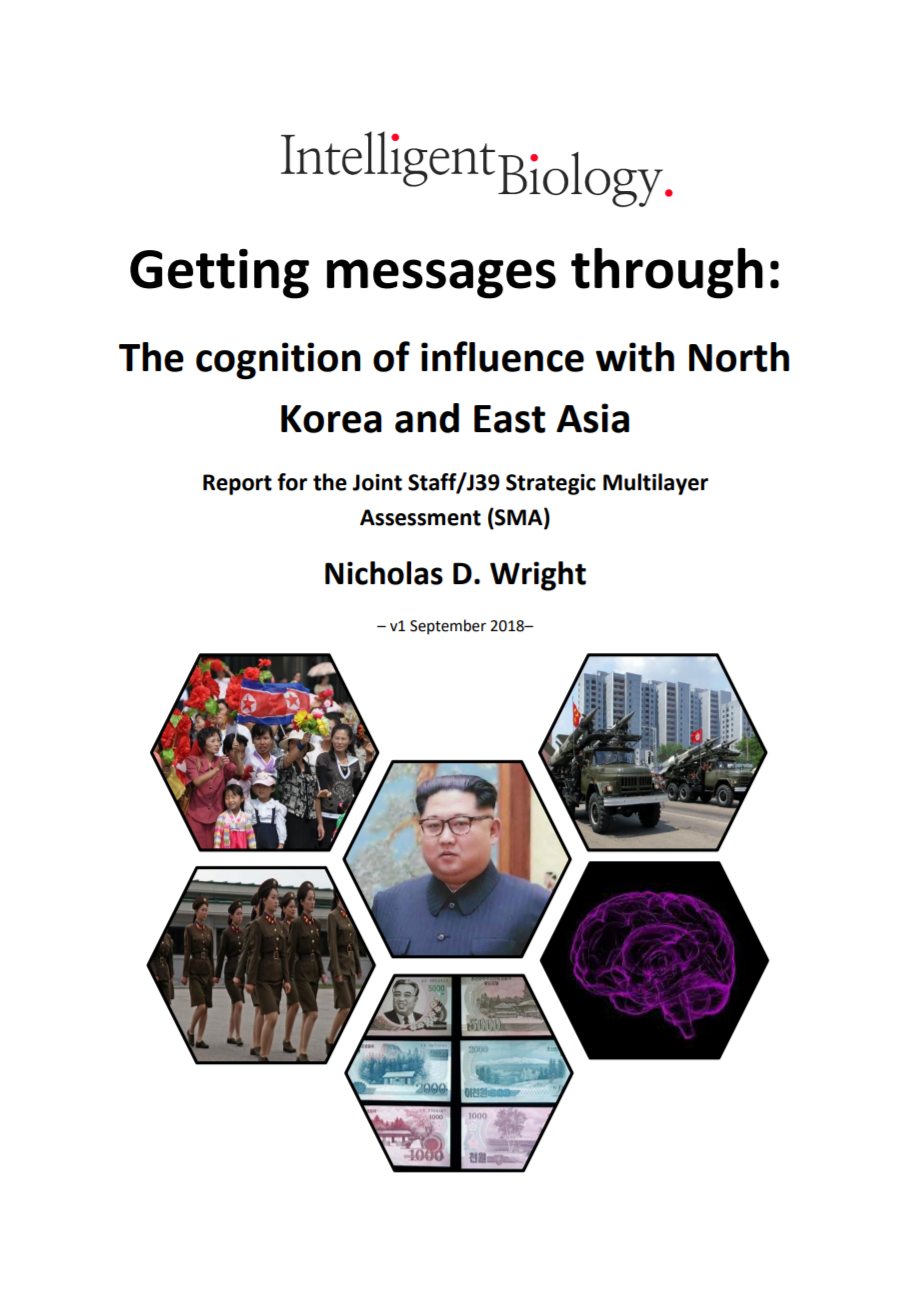Getting Messages Through: The Cognition of Influence with North Korea and East Asia
“Getting Messages Through: The Cognition of Influence with North Korea and East Asia”
SMA hosted a speaker session with Dr. Nicholas Wright (Intelligent Biology / Georgetown University) as a part of its SMA Korea Strategic Outcomes Speaker Series. This panel supported SMA’s Korea Strategic Outcomes project. For additional speaker sessions and project publications, please visit the Korea Strategic Outcomes project page.
Date: 2 November 2018
Speaker Session Preview
SMA hosted a speaker session presented by Dr. Nicholas Wright (Intelligent Biology / Georgetown University) as a part of its SMA Korea Strategic Outcomes Speaker Series. Dr. Wright began his presentation by posing two key questions: “What motivates North Korea and key regional actors?” and “What type of strategic confrontation do they face?” He then explained that fear, fairness, and unpredictability all drive these actors’ behaviors. He also stated that the US must understand that the situation on the Korean Peninsula is an example of a gray zone conflict. Dr. Wright also briefly presented his “checklist for empathy,” as well as Dr. Larry Kuznar’s (NSI) insights into Kim Jong-un’s cognition from his public speeches. He proceeded to explain what North Korea fears, how North Korea uses surprise and unexpectedness as tools, and how cultural lenses and human commonalities affect regional dynamics. Dr. Wright concluded by explaining why the situation on the Korean Peninsula should be construed as a gray zone challenge and offering several recommendations for US decision makers.
This panel supported SMA’s Korea Strategic Outcomes project. For additional speaker sessions and project publications, please visit the Korea Strategic Outcomes project page.
Speaker Session Recording
Briefing Materials
Biography
Dr. Nicholas Wright is an affiliated scholar at Georgetown University, a Consultant at Intelligent Biology, an honorary research associate at University College London and Cybersecurity Fellow at New America. His work combines neuroscientific, behavioural and technological insights to understand decision-making in politics and international confrontations, in ways practically applicable to policy. He was an Associate in the Nuclear Policy Program, Carnegie Endowment for International Peace, Washington DC and a Senior Research Fellow in International Relations at the University of Birmingham, UK. He has conducted work for the UK Government and US Department of Defense. Before this, he examined decision-making using functional brain imaging at University College London (UCL) and in the Department of Government at the London School of Economics. He worked clinically as a neurologist in Oxford and at the National Hospital for Neurology. He has published academically (some twenty publications, e.g. Proceedings of the Royal Society), in general publications such as the Atlantic and Foreign Affairs, with the Pentagon Joint Staff (see www.nicholasdwright.com/publications), and has appeared on the BBC and CNN.
Dr. Wright received a medical degree from UCL, a BSc in Health Policy from Imperial College London, has Membership of the Royal College of Physicians (UK), and has an MSc in Neuroscience and a PhD in Neuroscience both from UCL.
Report and slides


Comments